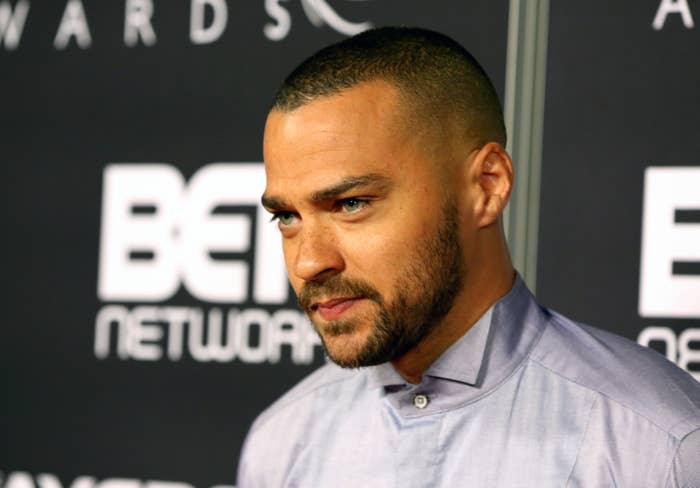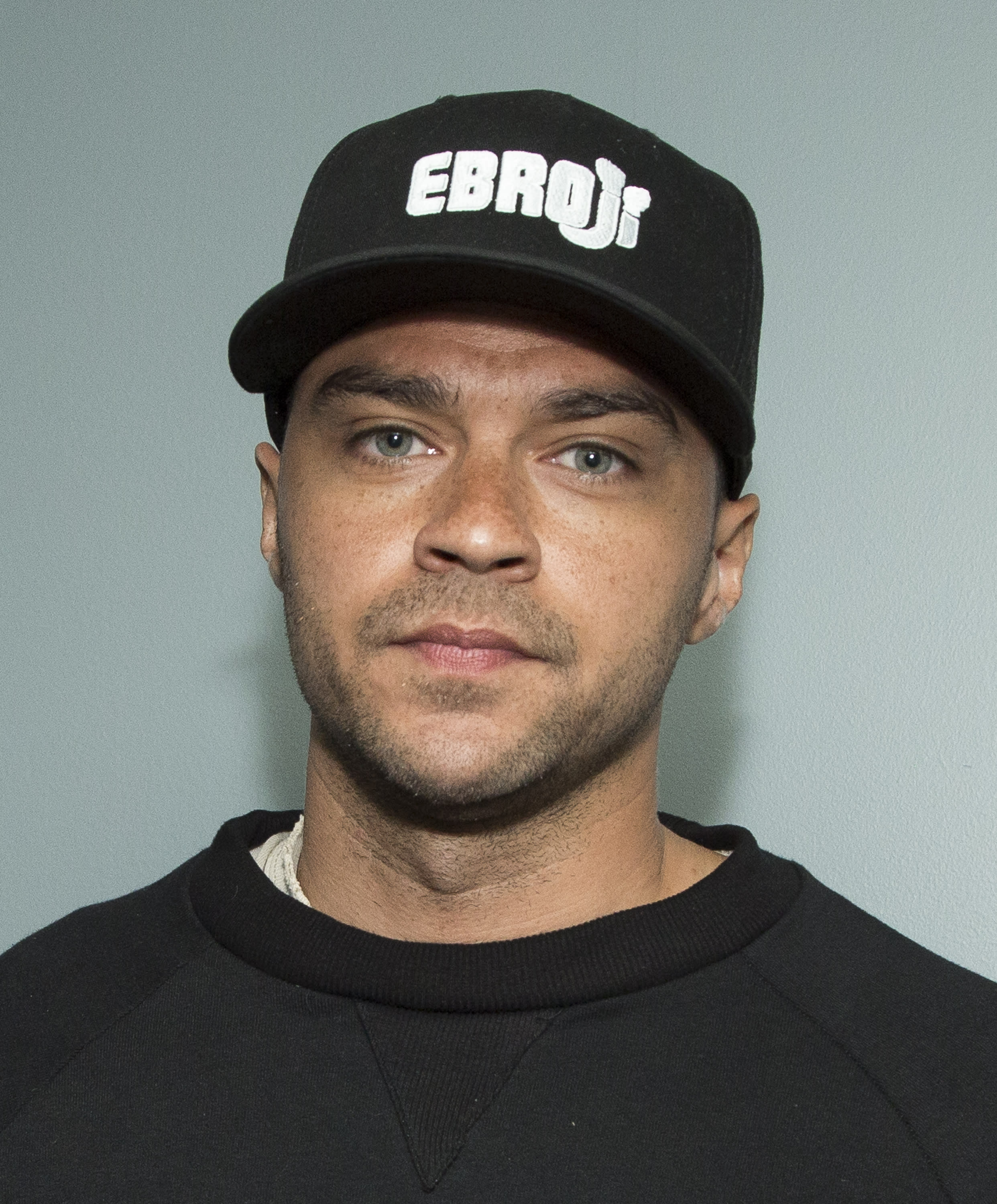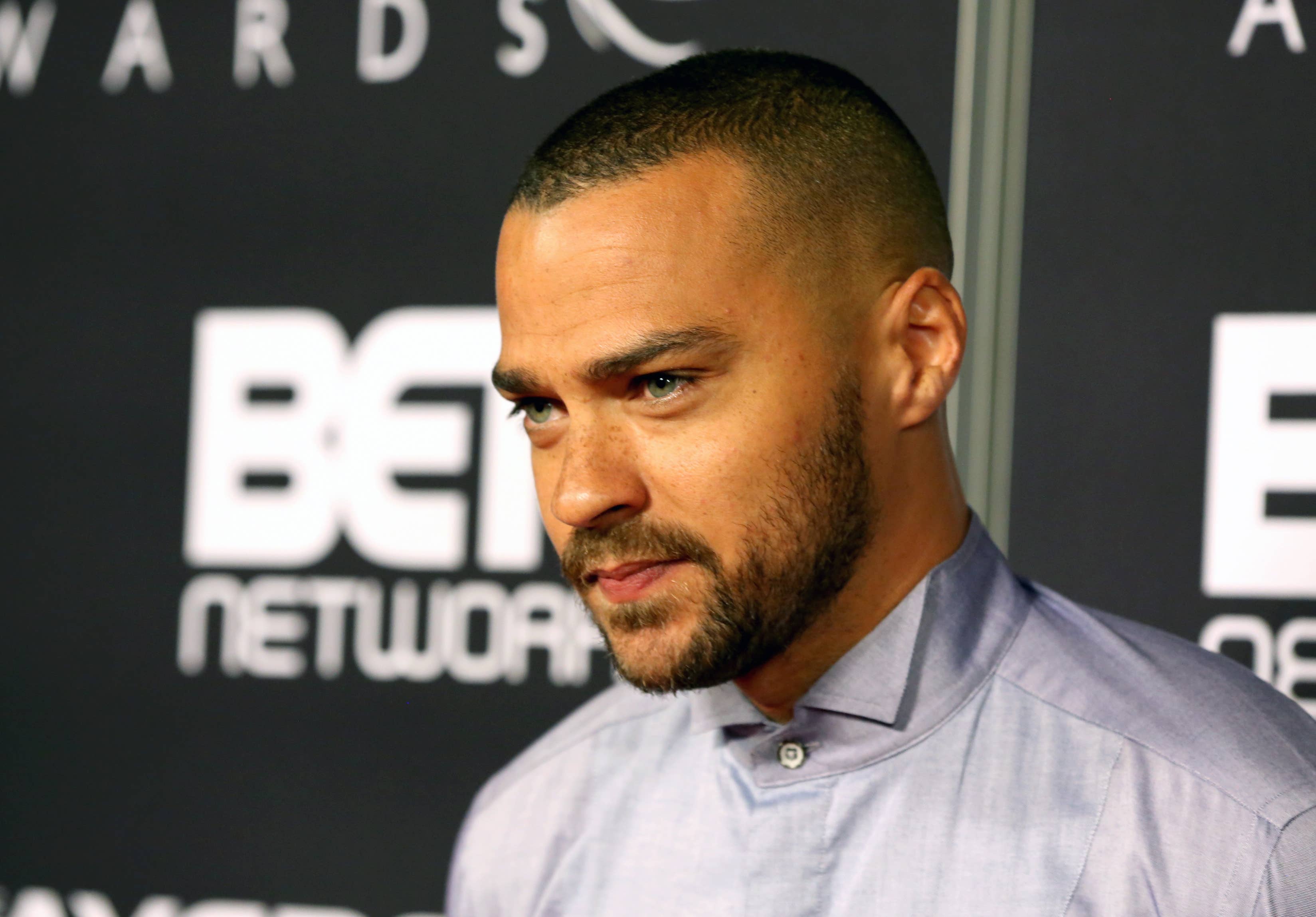
Jesse Williams is not your average actor. Before getting his big break on Grey’s Anatomy, the Chicago native, who earned his Bachelor’s Degree in African American Studies and Film/Media Arts from Temple University, taught in Philadelphia public schools for six years. Although he eventually left the classroom for the actor’s studio, Williams is still about educating the next generation. So when he noticed that black representation was largely missing from the tech space, Williams decided to do something about it by creating his own solutions to this problem.
Last year Williams—along with his ex-wife Aryn Drake-Lee and acclaimed conceptual artist Glenn Kaino—launched Ebroji, a “tailored language tool” and interactive keyboard that offers expressive GIFs featuring people of all races, gender identities and sexualities. Then, he became a board member and brand ambassador for Scholly, a mobile app that connects students to the millions of dollars in scholarships that go unclaimed every year. And he’s no quiet donor or silent partner; the activist-actor has been outspoken about the necessity of these products, both on his social media and at a number of events, including AfroTech and ComplexCon.
Most recently, Williams launched BLeBRiTY, a unique mash-up of Celebrity and Heads Up that’s primarily focused on black culture. In his downtime between decorating trees, baking cookies, and driving to relatives’ houses for the holidays, Williams chatted with us about BLeBRiTY, Issa Rae, and making a lane for people of color in Silicon Valley.
What was the inspiration for BLeBRiTY?
Everybody doesn't have to be everything to everybody; there is no monolithic blackness. We are not the same. We do not all have the same experience, and you are still black and you are still yourself and you are still valuable
We often use terms like "pop culture," and that often generally means white culture or white versions of black culture, and what we realized is that there really wasn't a representative presence in the black gaming space. We often, as black people… end up swagging out other peoples' platforms. We make other peoples' stuff cool—on social media, Twitter, Vine, etc. It's our culture, our trends, our language, our dances, our behavior patterns, our phrases, our aesthetic. And it doesn't become normalized or acceptable until white people do it, and we've already been ghettoized and dismissed. We're not part of the income stream, we don't own the companies, we're not employed at the companies, we just use them and make them relevant and topical. So we created a product that is joyful, that is fun, that does no harm, but that includes us. It is, you know, a sometimes revolutionary act just to stop excluding people, and a lot of the games that exist exclude us. So we decided, "You know what? Let's make something that includes us.” This game is for everyone, it just centers around black culture, in a way that we've always had to be witness to otherwise.
You launched another app, Ebroji, that was also centered around celebrating black culture and black communication. What have you learned since the launch of Ebroji that you were able to apply when you were launching BLeBRiTY?
One of the things we learned is: Can we be creative in the way that we make space for multitudes of experiences, age-wise, geographic-wise? We have a New York category that people who ain't never been to New York aren't necessarily gonna get. People that never went to an HBCU aren't gonna necessarily know the answers for our HBCU category, but we made that space for them… So what we realized is there's a way to really put a whole lot of different chairs and sections and tables in the room, and as long as you're in the room, you're good. Everybody doesn't have to be everything to everybody; there is no monolithic blackness. We are not the same. We do not all have the same experience, and you are still black and you are still yourself and you are still valuable.

And that insight all came from the Ebroji experience?
Starting off with Ebroji helped that process, because Ebroji is so rooted in language, the way in which we speak, and that expands into a fun experience, too. Making sure people feel comfortable in their home, in their socks, playing a game that their grandma likes, their mom likes, their little cousin that they don't even like likes and their kids like. [BLeBRiTY] is a family game; we constantly see videos where there's a multitude of generations of people in the video playing. You've got seven-year-olds, 40-year-olds, 10-year-olds and 27-year-olds all playing the same game. We consider that a triumph.
Are you happy with the way people are responding to the app?
We're overjoyed with the way people are responding, because it makes them happy. And what we're seeing is not just happiness; people feel gratitude. They feel validated. The black American experience, or anywhere in the diaspora where we're not actually from, is so rooted in alchemy. We're gonna make a meal out of these pig leftovers; we're gonna figure out a way to include the pig’s feet and intestines and these collards that nobody really wants. We're gonna make it into a meal. We're gonna make Twitter, which ain't built for us, we'll create our own corner, our section over here to drive conversation. We always make our own area, but BLeBRiTY meets people where they are. So folks are really excited and, I think, surprised, because they're not used to being seen in that way.
Beyond the game itself, what impact do you feel there will be in young people of color seeing someone who looks like them making moves in the app space?
We are opening young people’s eyes to the possibility that they can do something in tech and they don't have to sell out to do it. They don't have to code switch to do it. You can still talk the way you talk, and I still dress the way I dress. You can still be black and do it.
When I look at an audience and talk to people about this game, they see young black and brown people making something that really has currency in the tech space. Tech is astronauts in the hood. They don't know anybody that knows anybody that knows anybody that's working in that space and making products. So there's something really valuable about seeing people do something that now makes it possible for them. People pursue attainable goals, and we are opening young people’s eyes to the possibility that they can do something in tech and they don't have to sell out to do it. They don't have to code switch to do it. You can still talk the way you talk, and I still dress the way I dress. You can still be black and do it. So I think that that is certainly valuable, too.
BLeBRiTY is centered around and celebrates black culture, but it's also billed as being "for everybody." How do you feel about non-black people playing the game?
We want everybody to play it. You're welcome to play it [if you’re not black] and if you know the answers, dope. [Black people] are forced to know about white culture. We spend our entire lives being boxed in with European history and white supremacy. Seinfeld is one of my favorite shows. I know everything about Seinfeld. I watched Frasier, I watched Cheers. I also watched The Cosby Show and many other things. We watch everything because whiteness is the centerpiece for our lives, publicly, professionally, personally, academically, etc. This just happens to have black people in it. If you don't wanna play it, cool. It's not really about you; it's making a game that didn't exist before. So yes, we welcome anybody to come play it if that's something that you're into. Everything doesn't have to be for everybody, but it's not something we don't want folks to play. We want everybody to play it. There's nothing unique or different about this, it's just that black people are doing it for themselves.
Any final thoughts on more black people getting involved in the tech space?
To anybody that feels like they wanna make something, don't be intimidated by predominantly privileged, white spaces. Particularly black, brown, and women, we are just as good, just as smart, just as talented, just as creative as any of the folks in power that close us out casually to intimidate us and separate and isolate themselves. It's not about entry into the halls of power, it's about making a space and being a magnet for energy and people that wanna use it. Issa Rae said, "So many folks think about wanting to network up. But think laterally, think about your peers, think about your classmates alongside you.” You can build that boat yourself. Just be inspired. This is very doable. We have not been welcomed or encouraged or invited into the space; we kicked in the door... well, we turned the doorknob, we didn't kick it in. We just walked in.

